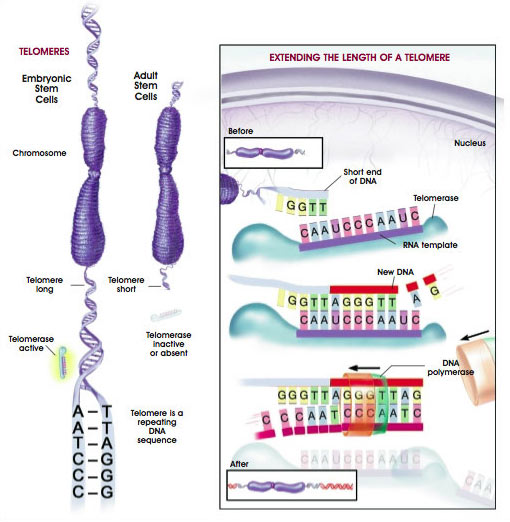New research corroborates that the trauma adult children of alcoholics experienced can have a big impact on their health and ultimately, their actual lifespan. There is a biological component that regulates aging. It can be significantly affected by stress, PTSD and trauma. The good news is there is a simple way to reverse the negative impact and live a healthier, longer life.
Telomeres are tiny but important bits of DNA at the very end of each chromosome in your body. Telomeres keep your chromosomes intact and as they shorten with age and stress, your cells lose their ability to divide and replicate and eventually die. This is part of the natural aging process.

Studies have been done relating to psychological stress and telomere shortening, including one that examined people with chronic post-traumatic stress disorder (PTSD). Not only was there a relationship between PTSD and shorter telomere length, but even more remarkable was the correlation between exposure to childhood trauma (prior to the age of 14) and telomere shortening.
In a study published in the Proceedings of the National Academy of Sciences in 2004, researchers found that female caregivers who reported very high levels of perceived stress had shorter telomeres in their lymphocytes (key cells of your immune system)—equivalent to one decade of additional aging—compared to women reporting low stress levels!
Another study, led by Eli Puterman, PhD, also found that non-exercising women with histories of childhood abuse had shorter telomeres than women who did not experience such abuse.
Studies indicate that those who experienced childhood trauma are predisposed to premature telomere shortening!
Interestingly enough, abuse victims who exercised vigorously at least three times a week showed NO such link! It appears that regular exercise effectively negated the detrimental effects of childhood abuse trauma on their telomeres! Among people who did not exercise, each unit increase in the Perceived Stress Scale was related to a 15-fold increase in the odds of having short telomeres.
The type of exercise is key to reversing the effects of telomere shortening. "Peak 8" exercises are a perfect example of high-intensity exercises. The key to performing them properly is to raise your heart rate up to your anaerobic threshold. You keep pushing at maximum effort for 20 to 30 seconds, and then recover for 90 seconds.
The cycle is then repeated for a total of eight repetitions. The video below demonstrates Peak 8 on a exercise machine but Peak 8 exercises can be performed with any type of exercise- with or without equipment. You can easily perform Peak 8 by walking or running outdoors.
Instead of doing an hour-long cardio workout, you'll be done in 20 minutes or so. The actual "sprinting" time totals just 4 minutes!
The other exciting benefit of Peak 8-style exercises is its ability to naturally increase your body's production of human growth hormone (HGH), which also plays a significant role in the aging process.
Here's to living a long, healthy life!
Check out the Orange County ACA website at: Orange County Adult Children

2 comments:
Very interesting and surely helpful. However- deal with your childhood issues in program as well to make this reasonable.--I say that remembering my days before entering recovery when I would exercise addictively to deal with stress- it became a bandaid NOT to feel. Exercise and the physiological postive aspects of it are legitimate- but without the dealing with the pain of the past can become another denial mechanism.- I am sure the article is insinuating that one would also be in recovery- but thought I would mention how important the combination of healthy living is.
That's really impressive and helpful article sir, we love to read it and we hope that you'll share some interesting articles in future too, its amazing to read and good to know.
Post a Comment